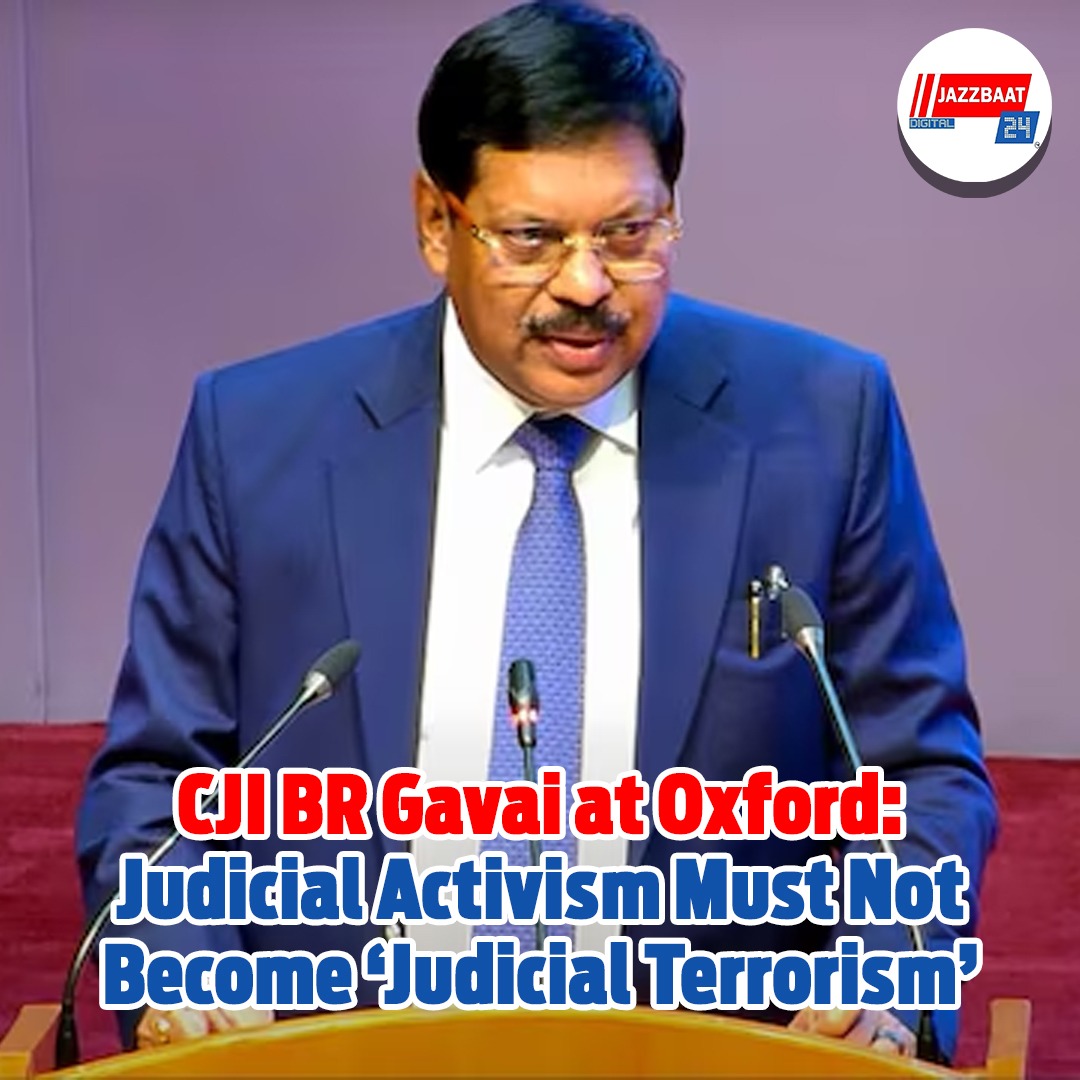
11 June, 2025:
Chief Justice of India (CJI) BR Gavai, while addressing the Oxford Union on the theme ‘From Representation to Realisation: Embodying the Constitution’s Promise’, stated that judicial activism will continue to hold a significant place in India’s legal landscape. However, he cautioned that it must never be allowed to turn into “judicial terrorism.”
“Judicial activism is bound to stay. At the same time, judicial activism should not be turned into judicial terrorism. So, at times, you try to exceed the limits and try to enter into an area where, normally, the judiciary should not enter,” CJI said.
He also has described the Constitution as a "quiet revolution etched in ink" and a transformative force that not only guarantees rights but actively uplifts the historically oppressed.
"Many decades ago, millions of citizens of India were called 'untouchables'. They were told they were impure. They were told that they did not belong. They were told that they could not speak for themselves. But here we are today, where a person belonging to those very people is speaking openly, as the holder of the highest office in the judiciary of the country," the CJI said.
He said the Constitution told the citizens that "they belong, that they can speak for themselves, and that they have an equal place in every sphere of society and power".
"At the Oxford Union today, I stand before you to say (that) for India's most vulnerable citizens, the Constitution is not merely a legal charter or a political framework, it is a feeling, a lifeline, a quiet revolution etched in ink. In my own journey, from a municipal school to the office of the Chief Justice of India, it has been a guiding force," he further said.
During his address, the Chief Justice of India also underlined the transformative role of the Constitution in uplifting marginalised communities. To illustrate this, he referred to his own journey.
“Many decades ago, millions of citizens of India were called ‘untouchables.’ They were told they were impure. They were told that they did not belong. They were told that they could not speak for themselves. But here we are today, where a person belonging to those very people is speaking openly, as the holder of the highest office in the judiciary of the country,” the CJI said.